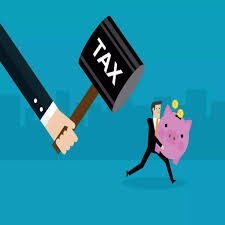According to SC, bank workers are not excluded from paying taxes on employer-provided interest-free or concessional loans.
When an employer lends money to an employee at a discounted interest rate, the employee must pay income tax. Because banks engage in this behavior most frequently, bank employees are the group most impacted by this regulation. The income tax law, which levied taxes on loans made to employees at a reduced interest rate, was constitutionally challenged by the All India Bank Officers Confederation, who had a different opinion.
Workers (even those employed by banks) are required to pay income tax on the difference between the interest rate on loans they obtain from their employers and the State Bank of India's prime lending rate (SBI). The real interest rate at which borrowers normally obtain a loan is frequently far lower than SBI's prime lending rate. The SBI prime lending rate—the standard used for this computation—was likewise contested by the bank officer's confederation.






















